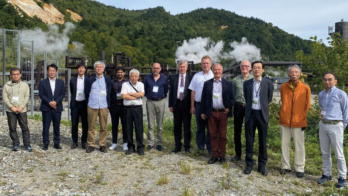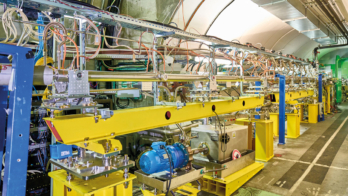The European Network for Novel Accelerators (EuroNNAc) was formally launched at a workshop held at CERN on 3–6 May as part of the EuCARD project. The aim was to form the network and define the work towards a significant Framework Programme 8 proposal for novel accelerator facilities in Europe.
The workshop was widely supported, with 90 participants from 51 different institutes, including 10 from outside Europe, and had high-level CERN support, with talks by Rolf Heuer, Steve Myers and Sergio Bertolucci. There were also contributions from leading experts in the field such as Gerard Mourou of the Institute Lumiere Extreme and Toshi Tajima of Ludwig Maximilians Universität, two senior pioneers in this field.
The field of plasma wakefield acceleration, which the new network plans to develop, is changing fast. Interesting beams of 0.3–1 GeV, with 1.5–2.5% energy spread, have now been produced in several places including France, Germany, the UK and the US, with promising reproducibility. Conventional accelerator laboratories are now interested to see if an operational accelerator can be built with these parameters. To avoid replication of work, a distributed test facility spread across many labs is envisaged for creating such a new device.
If a compact, 1 GeV test accelerator were pioneered, it could be copied for use around the world. Possible applications include tests in photon science or as a test beam for particle detectors. This could ease the present restrictions on beam time experienced by many researchers. These developments are currently being restricted to electron accelerators because they can be useful even when not fully reliable. Proton machines for medical purposes would, however, need to be more reliable.
In addition to the R&D aspects, the network discussed plans to create a school on Conventional to Advanced Accelerators – possibly linked to the CERN Accelerator School – and to establish a European Advanced Accelerator Conference.
The network activities will be closely co-ordinated with the TIARA and ELI projects. There is currently high funding support for laser science in Europe – about €4 billion in the next decade. EuroNNAc will help in defining the optimal way towards a compact, ultra-high-gradient linac. CERN will co-ordinate this work with help from the École Polytechnique and the University of Hamburg/DESY.
Further reading
For further information, or to express an interest in participating, please contact Ralph Assmann, euronnac.coordination@cern.ch.





